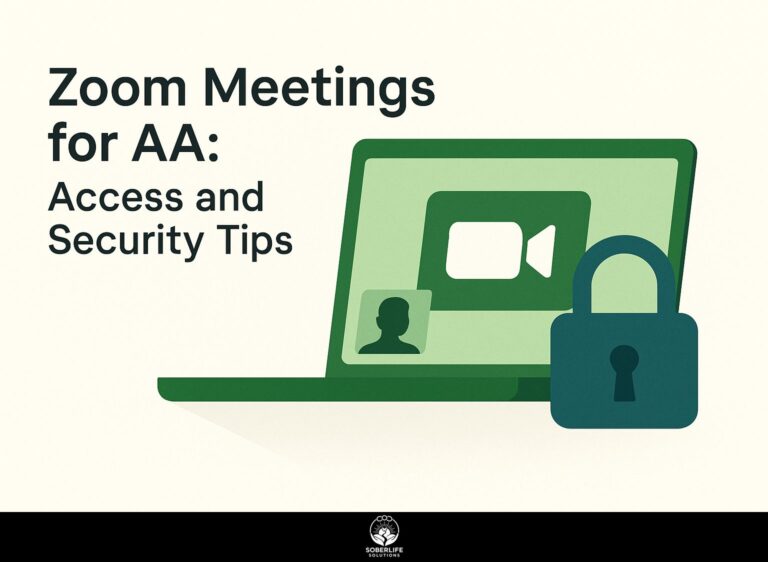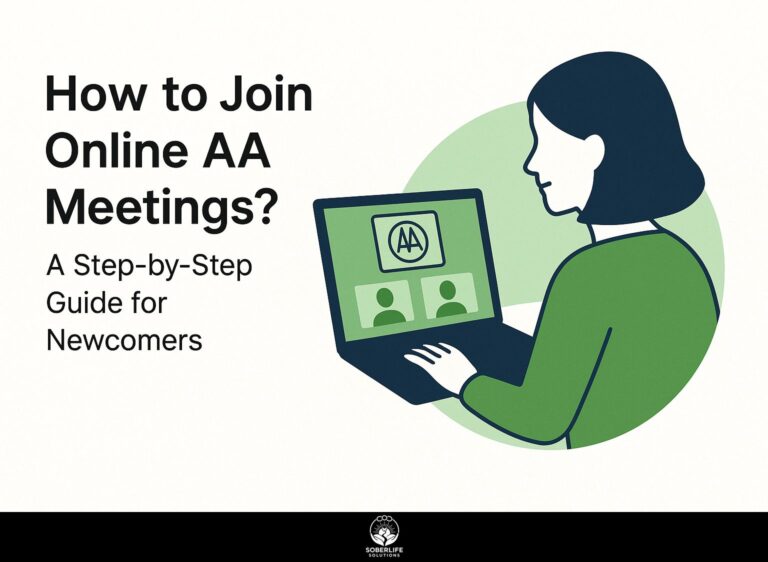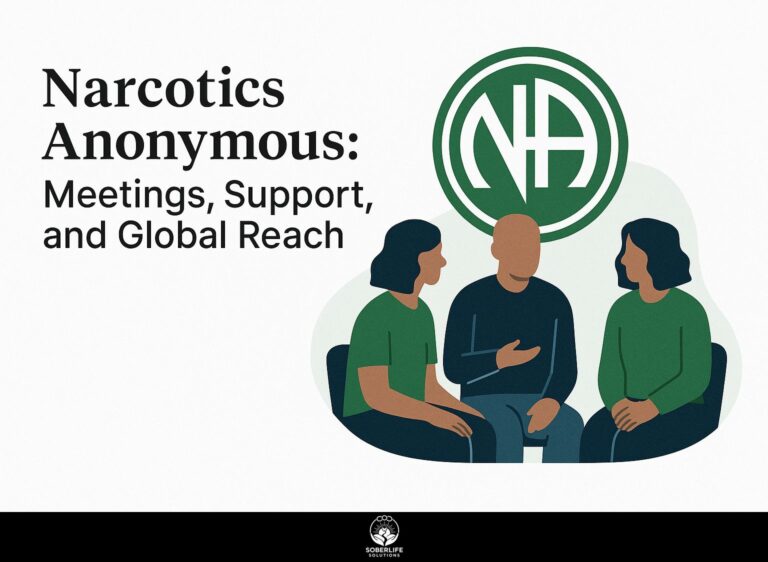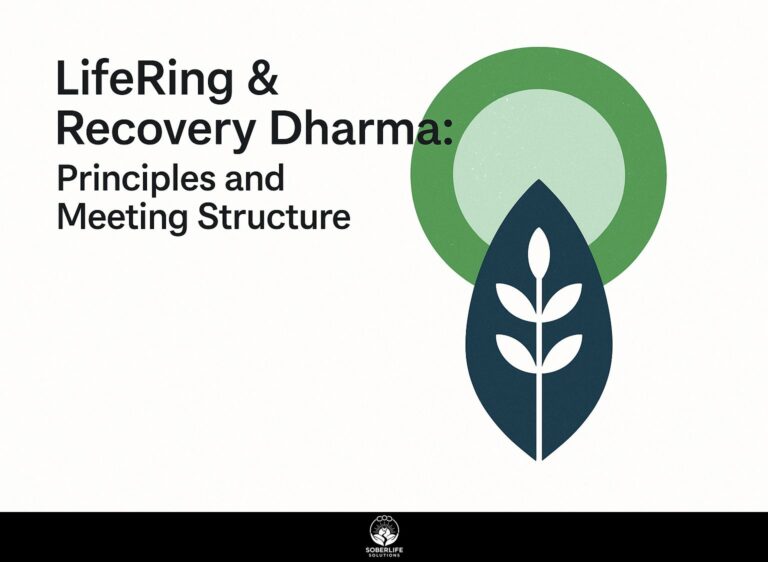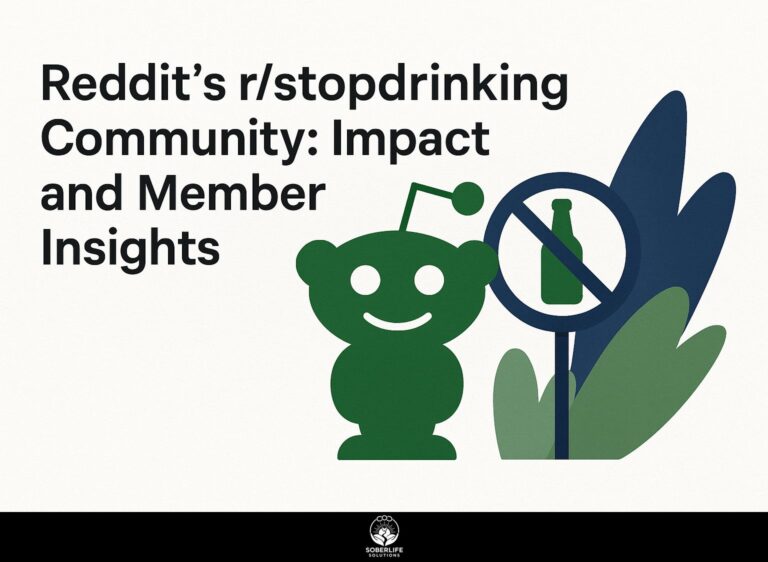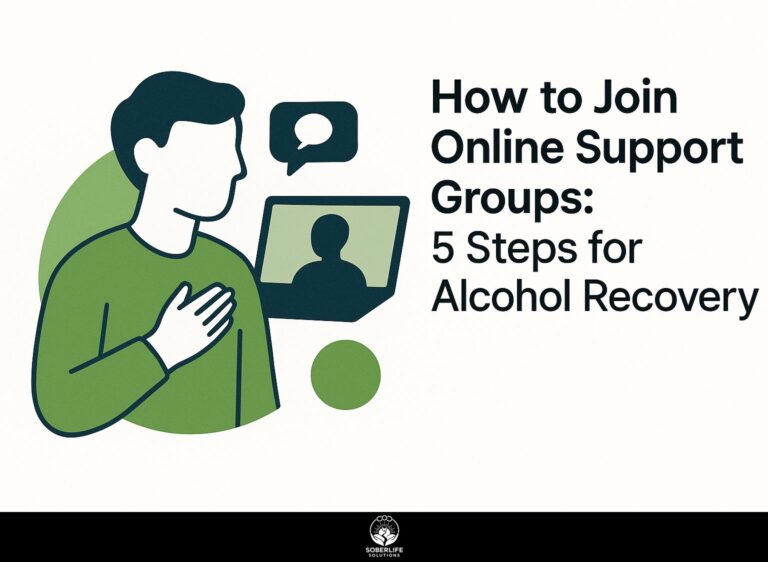Youth-Focused Alcohol Support Groups: Benefits and Program Features
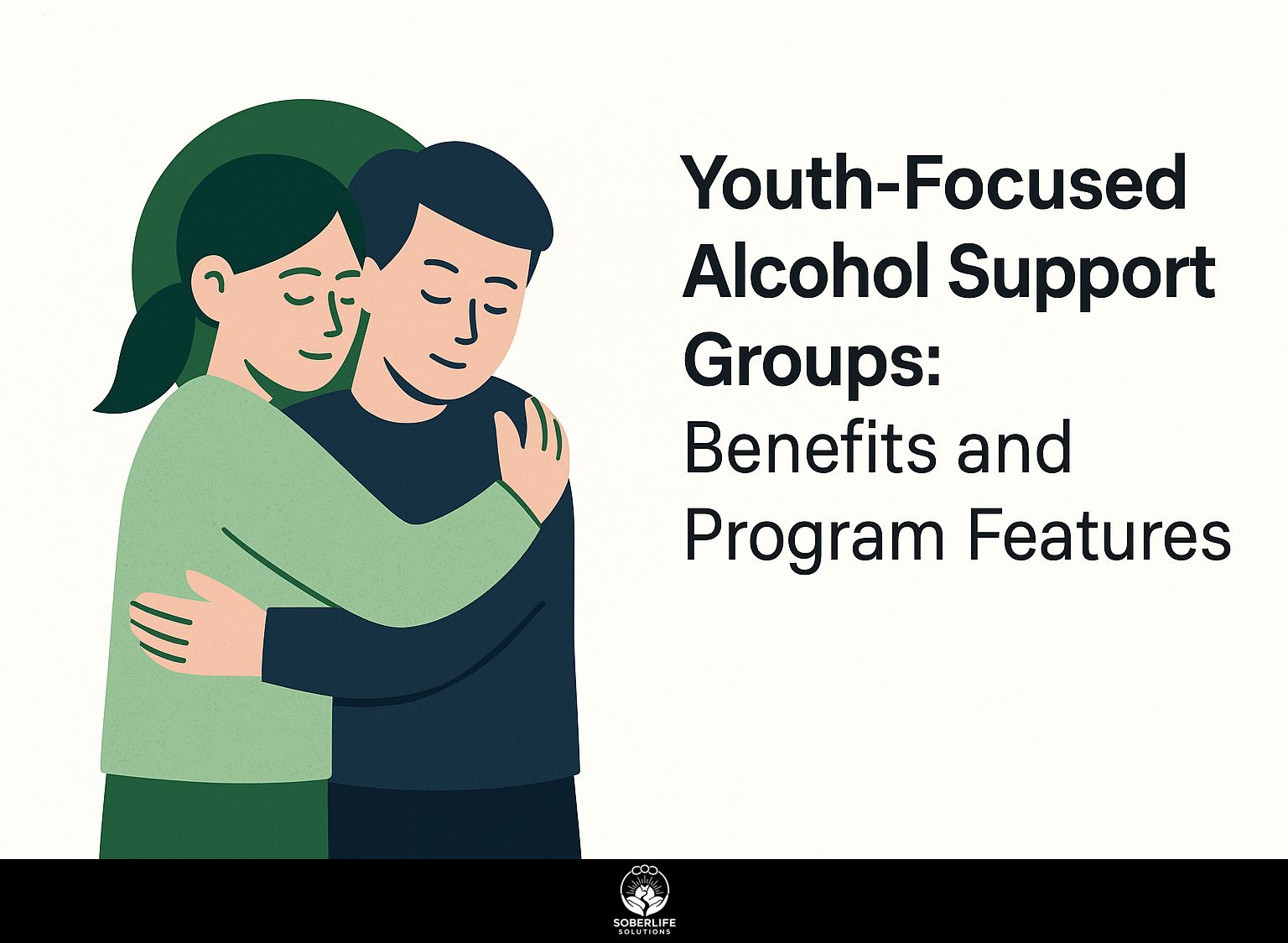
Dealing with substance use disorder can be particularly hard for young adults. However, alcohol support groups for young people provide essential recovery services designed specifically for their needs. Based on the social ecological model, these programs support recovery by encouraging relationships among peers. This article looks at established organizations like Alcoholics Anonymous to show the benefits and important aspects of these support groups. It explains how they help the next generation achieve long-term recovery.
Key Takeaways:
Benefits of Youth-Focused Support Groups
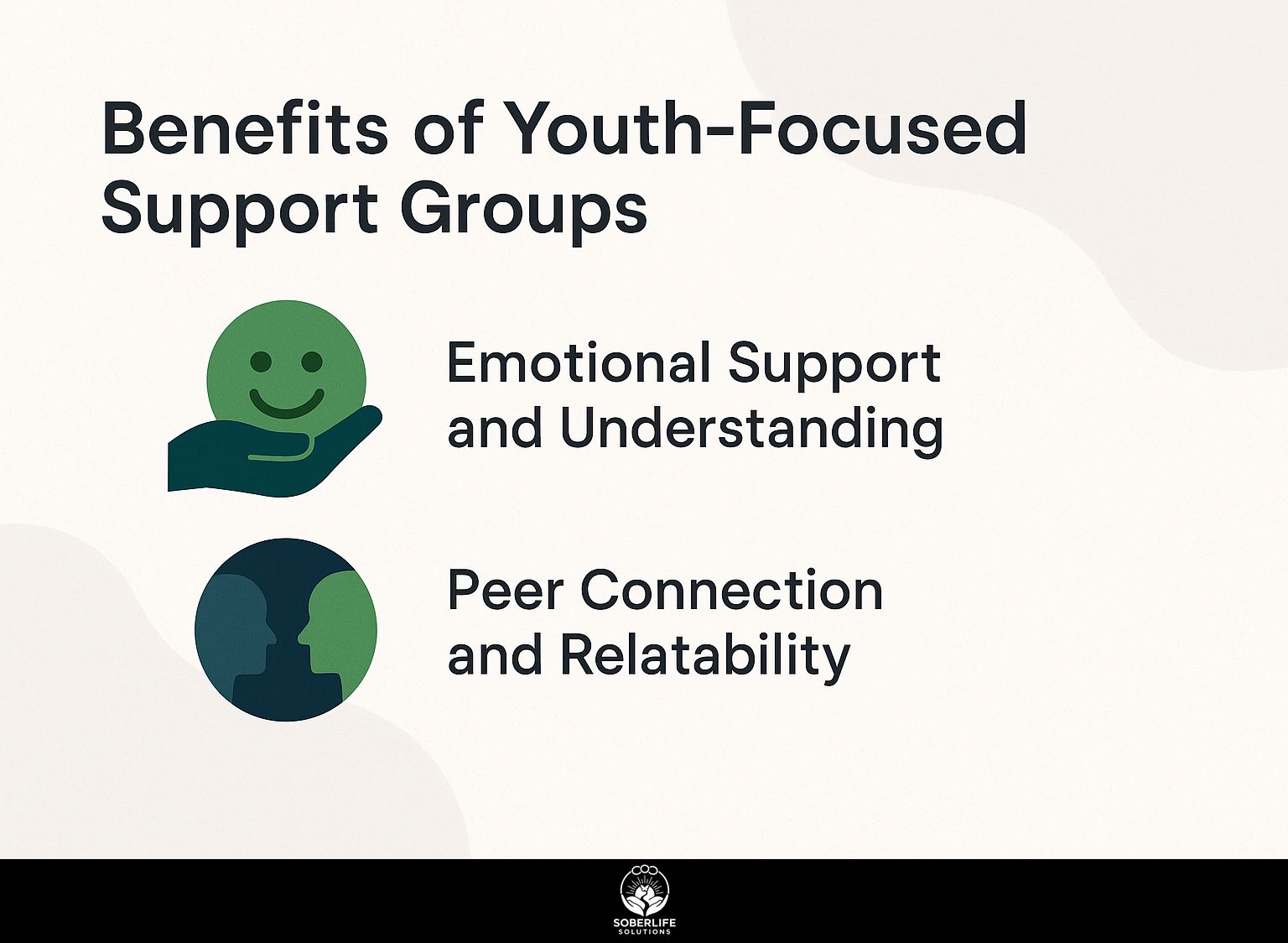
Support groups for young people can greatly improve recovery resources, providing specific benefits that build strength and mental health in young adults. This aligns with findings from MDPI, which suggests that peer support among young adults significantly enhances their perceived well-being. See also: Peer Support Roles: Specialists, Advocates, Providers, which further explores the critical roles played by peer support specialists in enhancing recovery.
Emotional Support and Understanding
Emotional support in youth groups helps young adults feel connected, which is important for those facing addiction.
Programs like the Recovery Community Services Program exemplify this by creating safe spaces where young adults can share their experiences.
Programs usually include:
- Regular group meetings
- Mentoring sessions
- Activities led by peers that promote open discussions
When people share stories, they can talk about their challenges and gain lessons from the experiences of others.
Trained facilitators concentrate on listening actively so that everyone feels valued and listened to.
These settings help build emotional strength, decrease loneliness, and support recovery for those involved.
Peer Connection and Relatability
Support groups help young adults connect and share their challenges, improving their path to recovery.
Research shows that individuals who engage in peer support exhibit a 50% greater likelihood of sustained recovery, according to Alcoholics Anonymous.
SMART Recovery emphasizes that spending time with supportive people boosts your motivation and helps you feel less isolated. Establishing connections can happen through shared experiences in group sessions, social events, or online forums.
These platforms facilitate discussions about personal challenges, enabling members to offer advice and encouragement. Building these relationships can greatly strengthen emotional resilience and result in better recovery results. For context, SAMHSA provides a comprehensive overview of how peer support can significantly enhance recovery outcomes through structured programs.
Program Features of Effective Support Groups
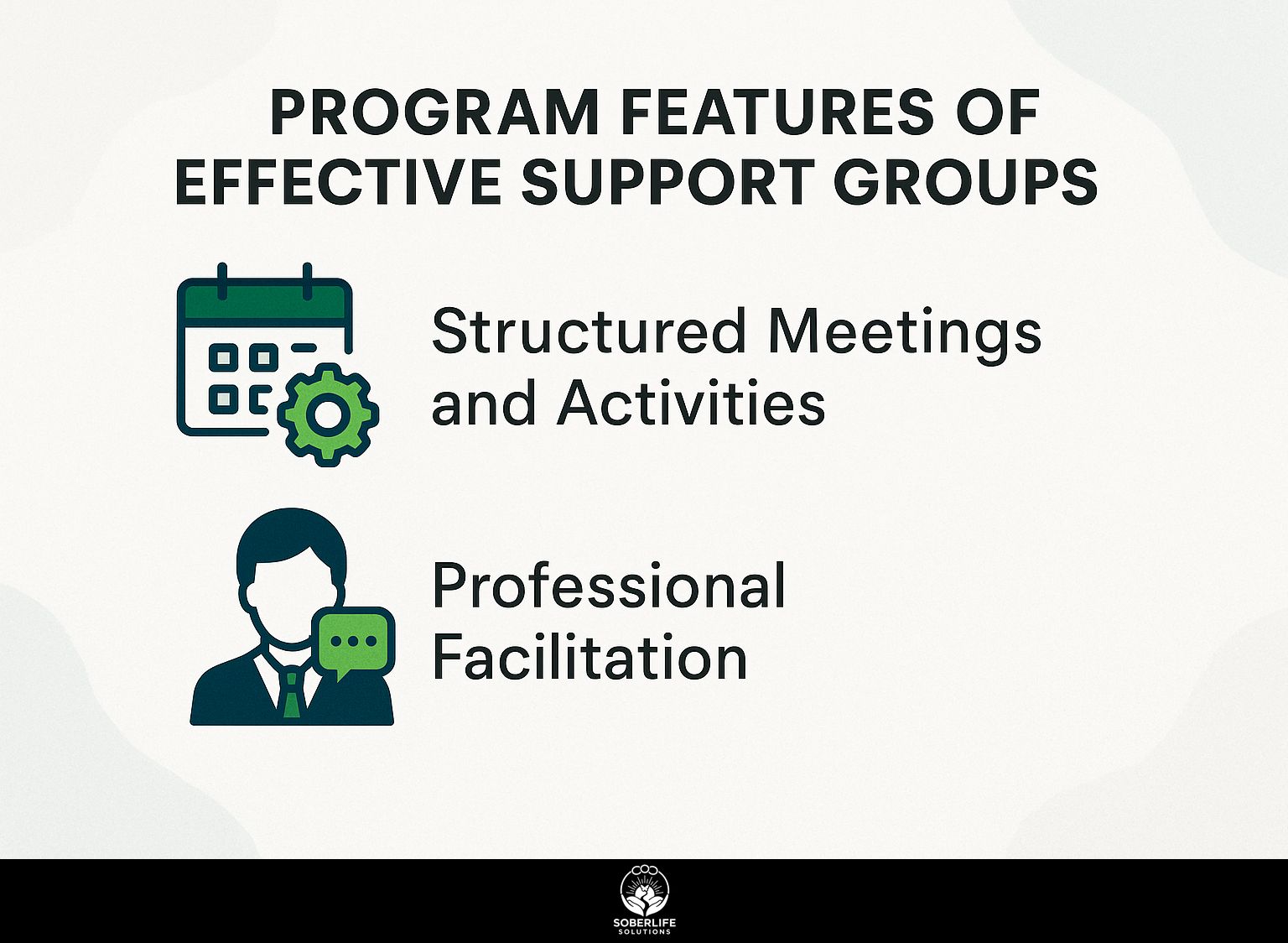
Effective support groups for young people use organized meetings and professional leaders to create a focused and productive setting. A key to ensuring their success is understanding how to create a relapse prevention plan that complements the group dynamics, providing members with strategies to maintain sobriety outside the group environment.
Structured Meetings and Activities
Structured meetings and activities are essential for maintaining engagement and promoting community capital among participants.
To maximize the effectiveness of these meetings, consider setting a weekly or bi-weekly schedule.
During these sessions, use icebreaker activities such as ‘Two Truths and a Lie’ to help people get to know each other. Assigning roles such as discussion leader or note-taker makes people feel responsible and engaged.
Celebrate achievements, no matter how small, to highlight progress and encourage motivation.
Tools like Google Meet or Zoom let you hold online meetings, while platforms like Trello help manage tasks, ensuring everyone stays accountable and engaged throughout the process.
Professional Facilitation
Teams with effective leaders make discussions better and allow everyone to participate.
A capable leader is important for guiding discussions and resolving conflicts. They create a secure space where people can talk openly and treat each other with respect.
For example, facilitators trained through programs like the International Association of Facilitators (IAF) learn skills in active listening and setting goals, which can greatly improve how groups work together. Training in conflict resolution helps leaders handle disagreements in a positive way, which strengthens group unity.
Bringing in experienced facilitators makes discussions better and encourages more people to take part, leading to successful and inclusive meetings. This approach is supported by insights from a discussion on Reddit’s Instructional Design community, emphasizing the value of training in facilitation skills for effective group collaboration.
Types of Support Groups
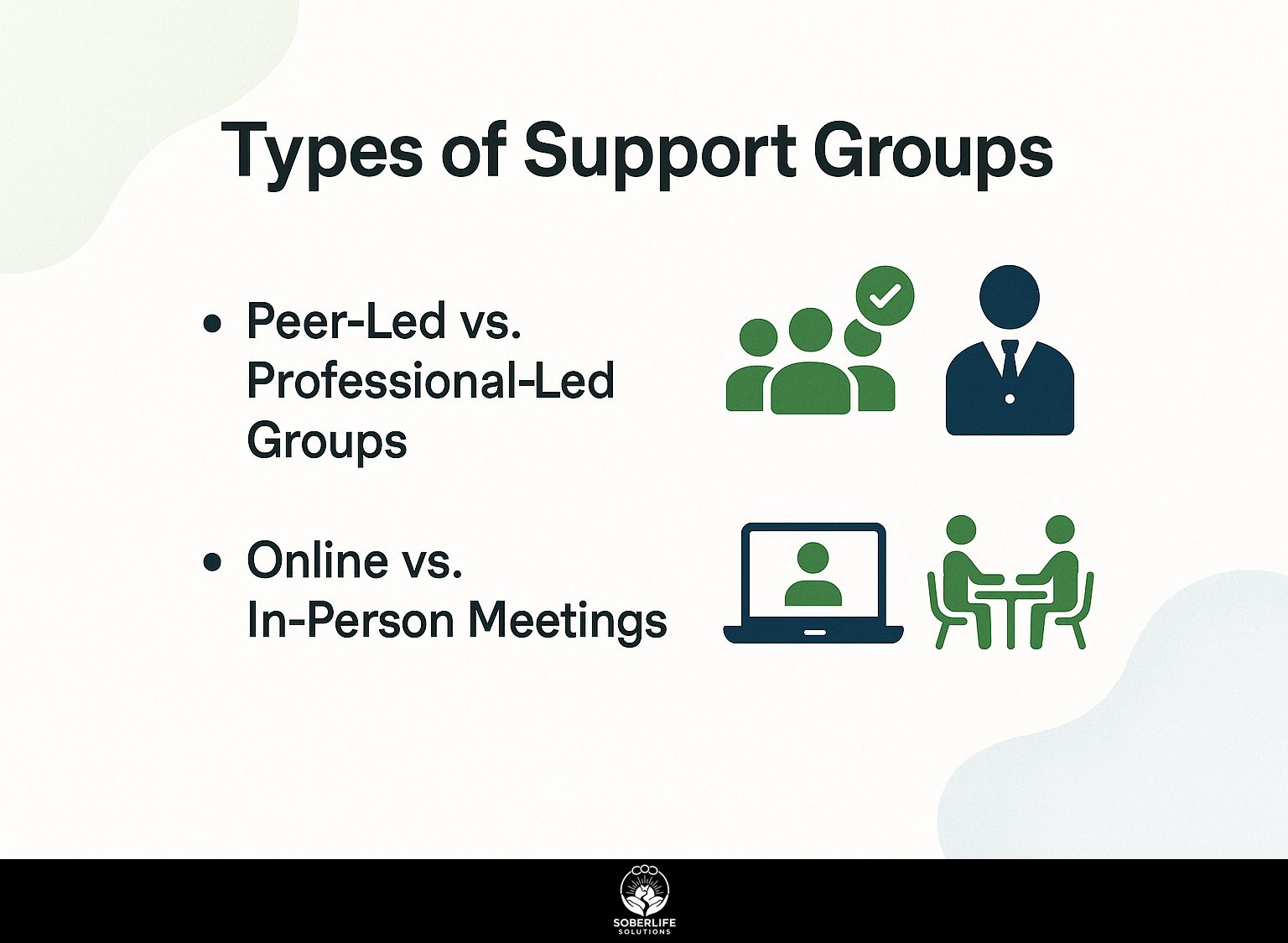
Support groups come in different styles and are led in various ways, each having its own pros and cons that can affect a young person’s path to recovery. The ongoing challenges brought by the pandemic have highlighted new dimensions to addiction recovery. Related insight: COVID-19 impact on addiction explores how the crisis has influenced support structures and recovery dynamics.
Peer-Led vs. Professional-Led Groups
Peer-led groups often create a sense of friendship, while professional-led groups offer organized direction and specialized knowledge.
Both formats have unique advantages. Peer-led groups excel in participant engagement, often leading to higher member satisfaction-85% of participants in a recent study reported feeling less isolated.
On the other hand, groups led by professionals usually achieve better results because of customized methods, with 70% of participants noting substantial personal growth. Peer support is based on shared experiences, whereas professional help relies on tested methods. Consider your objectives when choosing a group.
For example, if you’re looking for therapy-related information, a group with a professional leader might help more, while for emotional support, a group led by peers might be better.
Online vs. In-Person Meetings
Deciding whether to hold meetings online or face-to-face can greatly influence how many people attend and how involved they are, especially with young people familiar with technology.
For instance, a 2022 survey indicated that 63% of young people preferred online meetings due to convenience and flexibility.
Unlike online meetings, face-to-face gatherings help build community ties, with 70% of attendees feeling more connected. Accessibility can be a challenge for some, particularly those with mobility issues or geographic barriers.
To make the most of both formats, consider hybrid meetings, combining video conferencing tools like Zoom with local meetups. This approach allows for increased participation while maintaining a sense of community.
Challenges Faced by Youth in Support Groups
Even though support groups offer benefits, young people often face problems that can slow down their recovery.
One significant challenge is stigma, which can be addressed by promoting inclusivity through awareness campaigns that emphasize shared experiences.
For emotional barriers, introducing icebreaker activities can help participants feel more comfortable sharing their stories.
Lack of engagement often stems from inflexible meeting times; utilizing digital platforms like Zoom or Discord can increase accessibility and convenience.
Creating feedback forms without requiring names can adjust meetings to fit the group’s needs more effectively, leading to increased participation and a more welcoming atmosphere.
Success Stories and Case Studies
Success stories from groups that help young people show how these programs can change their lives.
For example, a group led by teens in San Diego dealing with anxiety used cognitive-behavioral methods along with mindfulness activities. Over six months, participants reported a 30% decrease in anxiety levels, supported by pre- and post-group assessments.
Similarly, a mentorship program in New York matched at-risk youth with local professionals, resulting in 85% of participants pursuing further education or skill training.
Both programs emphasize structured support, continuous feedback, and creating a community feeling, making them effective in promoting personal growth. For those interested in exploring the therapeutic impact further, our detailed analysis on therapies for recovery provides valuable insights.
Frequently Asked Questions
What are Youth-Focused Alcohol Support Groups and what are their benefits?
Youth-Focused Alcohol Support Groups are programs specifically designed for young individuals struggling with alcohol abuse. These support groups provide a safe and non-judgmental space for young people to share their experiences and receive guidance and support from peers. The benefits include developing healthier coping mechanisms, building a support network, and reducing feelings of isolation and shame.
How do Youth-Focused Alcohol Support Groups differ from regular support groups?
Youth-Focused Alcohol Support Groups differ from regular support groups in their focus on addressing issues unique to young individuals, such as peer pressure, social media influence, and academic stress. These groups use materials and activities suitable for the participants’ ages to keep them interested and help them learn.
What are some common features of Youth-Focused Alcohol Support Groups?
Some common features of Youth-Focused Alcohol Support Groups include group therapy sessions, educational workshops, peer mentoring programs, and recreational activities. These programs often use well-tested treatment methods, such as cognitive-behavioral therapy and motivational interviewing.
Who can participate in Youth-Focused Alcohol Support Groups?
Youth-Focused Alcohol Support Groups are open to individuals between the ages of 12-25 who are struggling with alcohol abuse. These programs may also have specific requirements for participation, such as a commitment to sobriety and willingness to actively participate in group activities.
Is there a cost to join a Youth-Focused Alcohol Support Group?
Many Youth-Focused Alcohol Support Groups are offered for free or at a low cost, as they are often run by non-profit organizations or funded by grants. Some programs might charge a participation fee. It is important to research and inquire about any potential costs before joining a support group.
Are Youth-Focused Alcohol Support Groups confidential?
Yes, Youth-Focused Alcohol Support Groups are confidential and participants are expected to respect each other’s privacy. This creates a safe and trusting environment for individuals to share openly and honestly without fear of judgment or repercussions. Confidentiality also protects the identity of participants and their personal information from being shared outside of the group.

